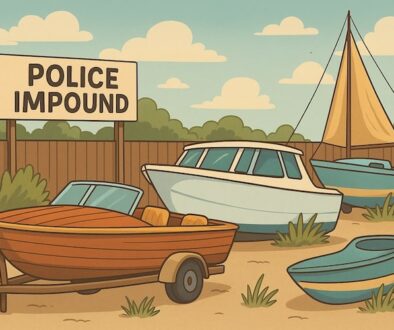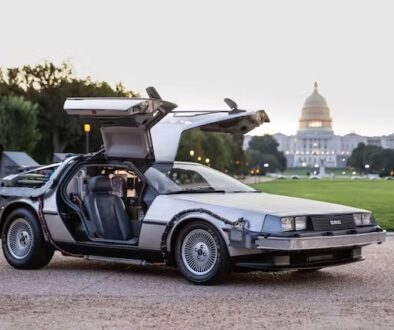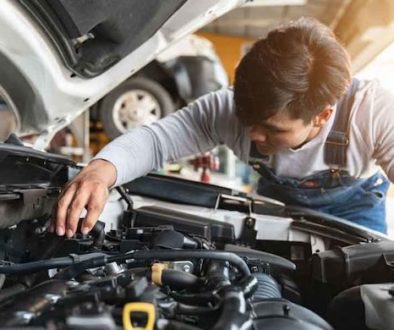Addressing Common Concerns and Myths About Salvage Cars
Hello, fellow car enthusiasts! Are you curious about buying salvage cars but have some reservations? Well, look no further.
To be successful, you will need to understand all of the misconceptions, doubts, and myths associated with salvage car purchases. Be able to dispel these ideas quickly so you can buy the car of your dreams, or perhaps find a Dodge charger on auction.
Understanding Salvage Cars: Not All Doom and Gloom
Let’s begin this discussion by quickly providing an overview of what exactly salvage cars entail.
Contrary to popular belief, salvage cars don’t necessarily consist of damaged or wrecked vehicles destined for the scrapyard. Instead, an insurance company has determined it too costly for repairs than its original value, such as due to accidents or floods, which caused its inclusion as a salvage car.
So, you may think these cars must be beyond rescue, but that isn’t necessarily true! Salvage cars can come in various conditions, while some might require some TLC before becoming valuable investments again.
Benefits of Buying Salvage Cars: A Pocket-Friendly Adventure
As expected, the main benefit of purchasing a salvage car is the lower price than buying a new or used one. Everyone loves a fantastic bargain!
Imagine this: you’re driving down the highway in an affordable ride that won’t break the bank, turning heads at every red light with its eye-catching features or being unique enough to spark conversations among fellow motorists.
All with potential savings on insurance and registration fees. Your wallet will thank you!
Debunking the Myths: Let’s Get Real
Let’s dispel some of those myths surrounding salvage cars that make them seem scarier than they are.
1. Safety Concerns: Don’t Let Fear Drive You
Safety is paramount — always.
However, not all salvage cars pose an immediate danger; with proper repairs and inspections performed, they may become roadworthy and reliable again.
Some salvage cars might not even have damage that makes them unsafe to drive, and they could have extensive exterior damage.
Remember, choosing a reliable repair shop that knows its stuff is key. They’ll ensure your ride is road ready.
2. Navigating the Coverage Maze
Navigating the coverage maze may initially seem intimidating, but don’t give up!
Though some mainstream insurers may raise an eyebrow at your inquiry about salvage car insurance providers, several specialized salvage car insurers provide tailored policies specifically for salvage vehicles. Just as finding your ideal car requires research and patience — finding suitable coverage does too!
Some auction-goers who are determined to buy a salvage car will get insurance tailored explicitly to it. This requires some extra effort, but that work pays off in spades.
3. Revealing Sneaky Hidden Damage
Hidden damage can sound like the plotline of a horror film, but don’t be scared off. It is not as frightening as you might think.
It’s not too uncommon that salvage cars might contain hidden issues that require an inspection to reveal, so allow the inspection process to do its work. The fees of these types of inspections and surprise repairs should be accounted for in the budget you made prior to purchasing your vehicle.
Think of it like visiting a doctor: A skilled mechanic can inspect and diagnose any potential issues with a salvage car, providing its equivalent of an annual physical.
Getting a mechanic to inspect a salvage car before buying is highly recommended but not always feasible. However, checking any newly purchased salvage car for sneaky damage is essential. By accounting for potential costs that are unknown, you can prevent yourself from overpaying on the vehicle at the auction.
For example, if you know you would not be able to afford more than three-thousand dollars for initial repairs for your desired vehicle, make sure the known damages do not amount to more than half that allowance.
It’s always safe to have some money put away for car maintenance and future repairs, so why not start saving before you buy?
4. Resale Rollercoaster: Salvage Cars Can Hold Their Value
Ah, the age-old question of resale! Believe it or not, well-repaired salvage cars can retain some value upon reselling, especially if they are ‘classics’ or still highly regarded cars.
For instance, if you have a salvaged classic car like a Mustang or Dodge, you may break even or profit from buying and repairing a recovered model.
However, this is not usually the case, as salvage cars are sold as such because they cost more to repair than they will sell for.
5. Title and Registration Puzzle: Fitting the Pieces Together
Navigating the title and registration process might feel like assembling an intricate jigsaw puzzle, but it is perfectly doable.
State regulations differ significantly, so it’s wise to do your research as some states make the process smoother than a freshly paved road, while others could present additional complications.
Many people take on a salvage car project and become overwhelmed with the title and registration process. But if you spend some time going through your state’s requirements step-by-step, you will find a way to restore it to road legal condition.
Salvage Car Red Flags: Things to Keep an Eye On
Venturing into the world of salvage cars can be thrilling. However, like any other adventure, there are certain pitfalls to be cautious of. Understanding these can save you a lot of time, money, and potential heartbreak:
- Mismatched VINs: Ensure that the Vehicle Identification Number (VIN) on the car matches the one on the title. Discrepancies could indicate potential fraud or stolen parts.
- Incomplete Records: A car with no history of repairs or a sketchy record could hint at rushed or subpar work. Proper documentation is not just a bonus; it’s essential.
- Water Damage: While some salvage cars suffer from accidents, others may have been damaged due to floods. Signs of rust, moldy interiors, or dampness are potential red flags for water damage.
- Emission Standards: Be wary of cars that don’t meet the emission standards of your state. They could end up being a costly headache in the long run.
- Recalled Parts: Ensure that the salvage vehicle doesn’t have recalled parts. Remember, safety is paramount.
The Emotional Connection: Reviving Classics
One significant allure of salvage cars, especially for automobile enthusiasts, is the prospect of reviving a classic or cherished model. Restoring such a vehicle not only offers a potential return on investment but also an emotional connection. There’s a unique joy in breathing new life into an old car, especially one that carries memories or historical value.
- Historical Context: Some cars hold a unique place in automobile history, making them collectibles. Recognizing these can lead to significant pay-offs.
- Personal Stories: For many, salvage cars are not just about the potential profit. It’s about bringing back to life a vehicle that has a personal or familial story.
Advocacy and Community: Joining Salvage Car Groups
Remember, you’re not alone on this journey. There’s a vast community of salvage car enthusiasts out there, and they can be a tremendous resource:
- Support and Advice: From online forums to local clubs, connecting with fellow enthusiasts can provide a wealth of knowledge and firsthand experiences.
- Group Purchases: Some parts or tools might be more affordable if bought in bulk. Teaming up with others can lead to cost savings.
- Workshops and Events: Many clubs organize workshops and events to share knowledge, show off completed projects, and even sell or trade cars and parts.
Final Thoughts: The Green Aspect of Salvage Cars
Tips for Buying Your Dream Salvage Car
Time for some details and insider tips on making the most of your salvage car journey.
- Research Your Options: Do your homework. Becoming acquainted with salvage titles, the repair process, and what features should be present in a potential purchase is your key to success.
- Mechanic Magic: Never forgo consulting with a qualified mechanic before purchasing any car. Their insight will provide valuable information regarding potential issues and allow you to make a more informed decision.
- Reputable Repair History: Make sure that documentation of repairs and parts used is available to gain in-depth knowledge of your vehicle.
- Less is More: When shopping for salvage cars with minimal damage or easily replaceable parts in mind, consider those which offer you more significant savings in both time and money during the repair process.
Embrace Your Salvage Car Adventure
So there you have it — an overview of salvage cars, debunking myths, and offering solid advice to get you on your journey. Buying salvage cars is more than just about saving money; it can also be an adventure and opportunity to restore an iconic four-wheeled masterpiece. There’s also an environmental perspective to consider. By restoring a salvage car, you’re essentially recycling a vehicle. This reduces waste and the need for new materials, thus contributing to a greener planet. In a world grappling with sustainability issues, restoring salvage cars can be a small step towards a larger cause.
Safety and thorough inspections should never be compromised. Reputable mechanics and salvage car dealerships can be your ally in this pursuit: be curious, informed, and you’ll soon be driving off in your dream ride.
Here’s to your salvage car adventure; may it be as exciting as racing around a racetrack!



